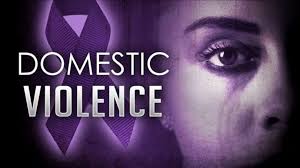STAYING SAFE AT HOME- DOMESTIC VIOLENCE IN THE WAKE OF COVID-19

Kenya has not been left behind in bearing the ravages caused by the COVID-19 pandemic. The socio-economic effects of the pandemic have resulted in both good and bad fortunes as far as the family unit’s wellbeing is concerned. The nature of the disease has prompted a global push sanctioned by executive orders for restricted movements of people. The stay-at-home recommendations in Kenya have introduced a new normal in many homes, whereby family members not previously used to sharing the home space for seemingly extensive lengths of time are now forced to. The dynamic has become more complex in the sense that many families now face dwindling incomes with the looming risk of job losses, rising costs of living, less social interaction with social support units such as extended family and religious communities. Further parents/caregivers have more pressure to deliver when working from home while still juggling child care and other domestic duties. The psychosocial effects have proven negative and there has been a global upshot in instance of domestic violence. The heightened stress levels have led many partners to exhibit violent or abusive behaviour towards their live-in partners as a projection mechanism. This, unfortunately, could lead to deadly consequences. What are people to do?
The Constitution of Kenya, 2010 recognises the family as the basic unit of the society and includes special provisions that aim at protecting its sanctity and the dignity and fundamental rights of its members. These include provisions on equal rights and responsibilities of married parties, the overriding interests of children in any matter concerning them, the human dignity of individuals, the rights of access to justice, health and the freedoms and security of people. These protections flow into the private spaces of people and are injunctive against destructive behaviour towards others.
In the arena of domestic violence, Kenya has made efforts towards creating a safer environment and healing the scars of victims of domestic violence. Statutes such as the Protection Against Domestic Violence Act (PADVA), 2015 was a boost to the more general Penal Act that was primarily the backbone of criminal law. PADVA gives specific attention to the realm of intimate partner violence and offers a raft of remedies for the various manifestations of domestic violence. The application of the statute has never been more needed in these precarious times of cloistered living under the canopy of lockdowns, work-from-home orders and quarantine measures. Many victims are left stranded, not knowing where to start or who to turn to for help. The desperate situation is further compounded by the limited privacy in many homes limiting flow of information to other sources and the pitiful situation of many women who depend on their partners economically. Therefore, it’s imperative to carefully assess the legislative provisions in PADVA, the blunt and sharp sides of this statutory blade. Domestic relationships include marriages, persons previously married, live-in partners, a family member of parties living together, persons engaged to each other, parties who have children together or a close personal relationship with the other person in a domestic relationship.
What are the rich pickings of PADVA in the COVID-19 season?
PADVA makes certain provisions as a response toward domestic violence. Under the act, “Domestic violence”, in relation to any person, means violence against that person, or threat of violence or of imminent danger to that person, by another person with whom that person is or was in a domestic relationship. Under section 3 of the Act, violence has been defined to include among others abuse that includes forced marriage, forced wife inheritance, interference from in-laws and sexual violence within marriage. It also includes damage to property, defilement, depriving someone from access to or a reasonable share of the facilities associated with their place of residence, economic abuse, emotional or psychological abuse, forcible entry into the one’s residence where the parties do not share the same residence, harassment, incest, intimidation, physical abuse, sexual abuse, stalking, verbal abuse or any other conduct against a person, where such conduct harms or may cause imminent harm to the safety, health, or well-being of the person.
Protection Orders and Reporting of Complaints:
A person in authority, mostly a police officer to whom a case of domestic violence has been reported is required to advise on the available relief measures including access to shelter or medical assistance or assist the complainant in any other suitable way. A police officer is allowed to enter homes for investigation purposes.
A report can be made by any person other than the victims. It is a crime to attack, intimidate or harm individuals who act as informers. The privacy of informers is highly protected for the sake of their well-being. Usually, a protection order will direct that a respondent shall not physically or sexually abuse or threaten to abuse the protected person; damage, or threaten to damage, any property of the protected person; engage, or threaten to engage, in behaviour including intimidation or harassment, which amounts to psychological abuse of the protected person; encourage any person to engage in behaviour against the protected person where the behaviour, if engaged in by the respondent would be prohibited by the order; engage, or threaten to engage, in behaviour including intimidation, harassment or stalking which amounts to emotional, verbal or psychological abuse of the protected person; engage, or threaten to engage, in economic abuse of the protected person; or engage, or threaten to engage, in cultural or customary rites or practices that abuse the protected person.
A protection remains in force for the period specified by the court and may be reviewed, from time to time, depending on the circumstances.
The Court Process
A person who is in a domestic relationship with another person may apply to the Court for a protection order in respect of that other person. Where the person who is eligible to apply for a protection order is a child, the application may be made by a representative. Where the person who is eligible to apply for a protection order is not a child but is unable to make the application personally, an application may be made on that person’s behalf by a representative.
Protection for Children
A child may make an application for a protection order under the Act through a parent or guardian, a children officer, the Director of Children’s Services, a police officer, a probation officer, a conciliator or any other person the court may allow, a social welfare officer, a person acting on behalf of any religious


Hi. The http://www.begislaw.com site is great: it has a lot of valuable information and is easy to find.
I learned a lot from here, so I want to ask about a recommended
book as the best natural remedies: https://bit.ly/3cJNuy9
What do you think, it’s worth buying, is it too cheap?
Thanks and hugs!